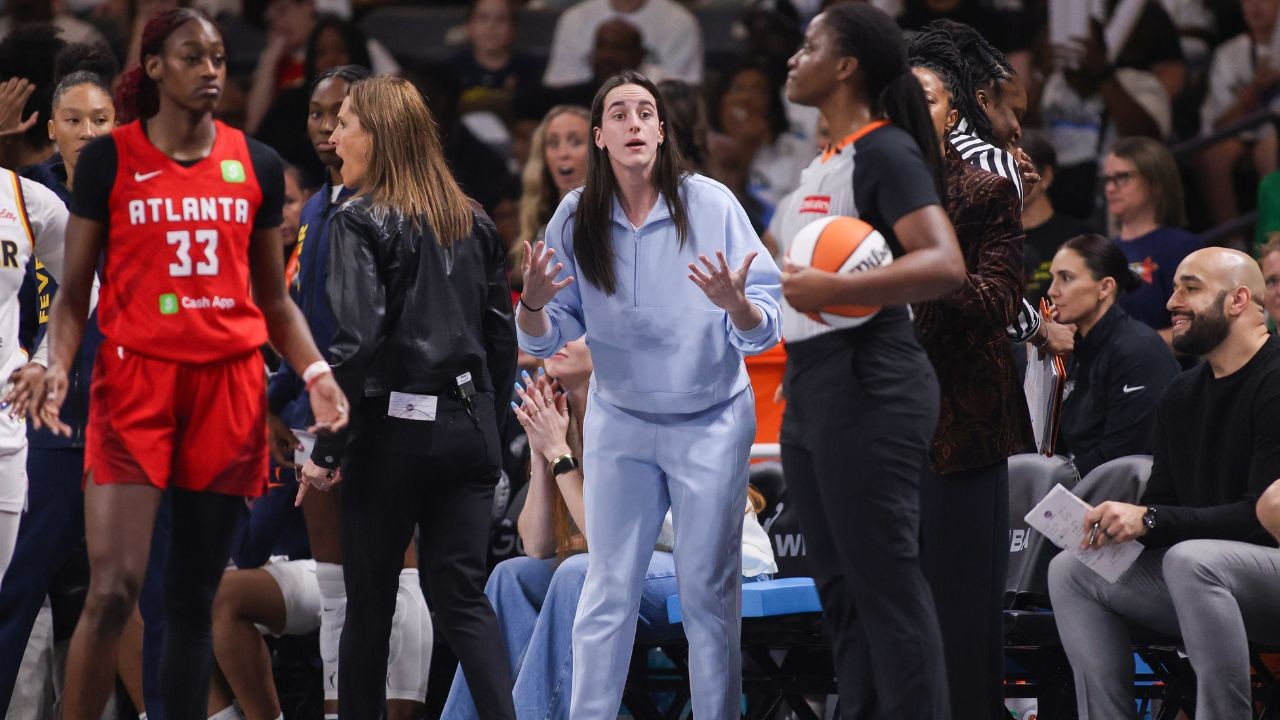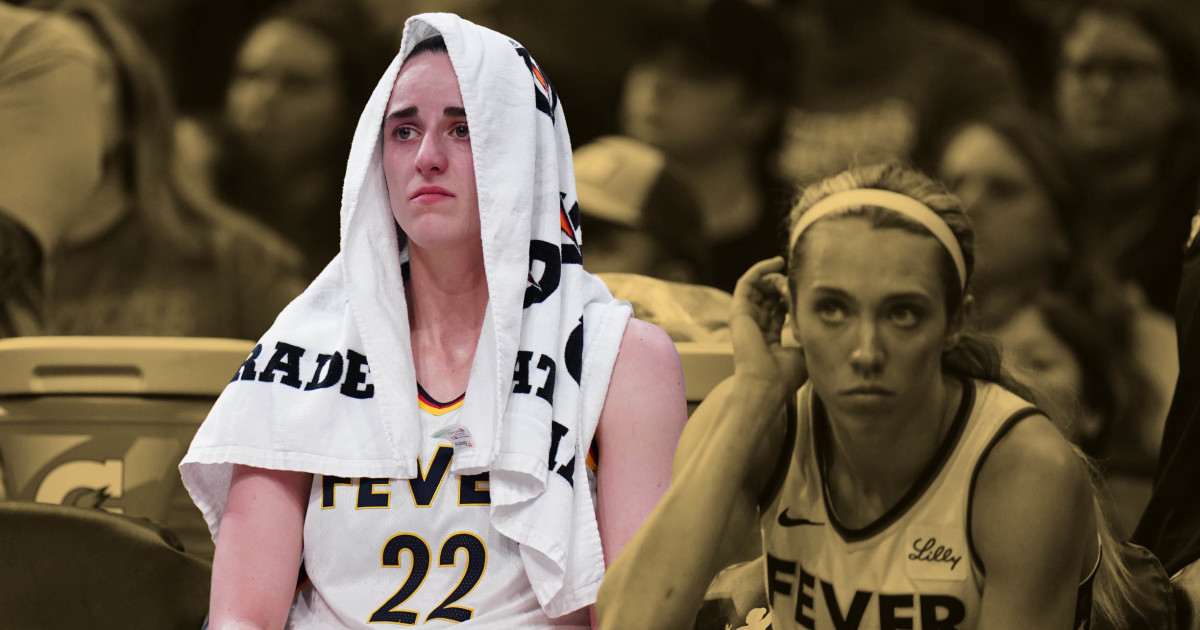“You Had the Golden Egg”: Olden Polynice Rips WNBA Over Caitlin Clark’s Treatment
The conversation surrounding Caitlin Clark’s rocky introduction to the WNBA escalated this week when former NBA center Olden Polynice issued a blunt warning: the league is mishandling its brightest young star. Polynice, who played more than a decade in the NBA, argued that the rough treatment Clark has endured from opponents echoes the infamous “Jordan Rules” once used to contain Michael Jordan. In his view, the WNBA is not doing enough to protect the rookie guard, and the consequences could prove damaging not just to Clark but to the league’s future.

“You had the golden egg, and you’re breaking it,” Polynice said in an interview that quickly reverberated across sports media. “She’s the one bringing in the money, bringing in the fans, filling arenas. Why would you allow this kind of treatment that risks injury or even discourages her? That doesn’t make sense for a league trying to grow.” His sharp criticism has placed new pressure on the WNBA as debates intensify about how to balance competitive integrity with safeguarding marketable stars.
Clark entered the league earlier this year as the most hyped prospect in women’s basketball history. Her dazzling shooting range and record-breaking performances at the University of Iowa had already turned her into a national sensation, drawing television ratings that rivaled some NBA broadcasts. Since joining the Indiana Fever, Clark has been a magnet for media attention, ticket sales, and sponsorship opportunities. According to league data, attendance has surged across multiple arenas, while merchandise featuring Clark’s name continues to sell out.
Yet, her on-court experience has been far from smooth. From hard fouls to targeted defensive schemes, Clark has faced physical play that some observers believe crosses the line. Video clips of opponents knocking her to the floor have gone viral, fueling arguments over whether she is being “welcomed to the league” in the traditional sense or subjected to something harsher. Polynice insists the latter is true, drawing a direct comparison to how Jordan was once singled out by the Detroit Pistons with a defensive strategy designed to wear him down physically.

“Everyone knew what the ‘Jordan Rules’ were,” Polynice explained. “They wanted to rough him up, knock him off his rhythm, make him pay every time he drove into the lane. What I’m seeing with Caitlin is similar—she’s being targeted not because she’s just another rookie, but because of what she represents. That’s dangerous for her and for the WNBA.”
His comments have triggered a flurry of responses. Some WNBA analysts counter that Clark is simply going through the same initiation all rookies endure, especially those who arrive with massive fanfare. Others, however, agree with Polynice that the league risks alienating new fans if Clark is perceived as being unfairly punished. The debate reflects a larger question about professional sports: how to preserve the spirit of competition while recognizing the business realities tied to star players.
Supporters of Clark note that her influence has already expanded beyond the court. Television contracts are drawing more favorable terms, new sponsors are investing in women’s basketball, and younger fans are tuning in at unprecedented rates. Critics fear that if Clark were to suffer a serious injury or lose enthusiasm under relentless physical pressure, the momentum could stall. Polynice’s phrase—“the golden egg”—captures the fragile balance the WNBA faces in leveraging Clark’s popularity while ensuring her longevity.
For now, league officials have remained largely silent, emphasizing their commitment to competitive fairness and player safety. But with every new highlight clip of Clark being knocked down, the calls for stronger protections grow louder. Whether the WNBA adjusts officiating standards, introduces new measures, or simply allows the physical play to continue unchecked could shape not only Clark’s career but the trajectory of the league itself.
As Polynice concluded in his remarks, “The WNBA has been waiting for this moment for years. Caitlin Clark is a once-in-a-generation star. If you can’t protect her, you’re risking everything she’s brought to the table.”
Leave a Reply